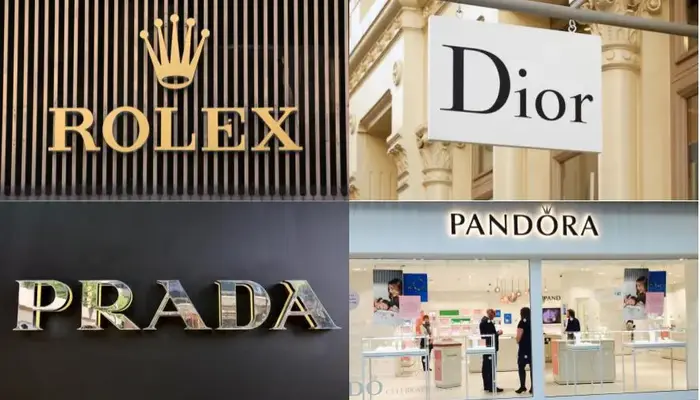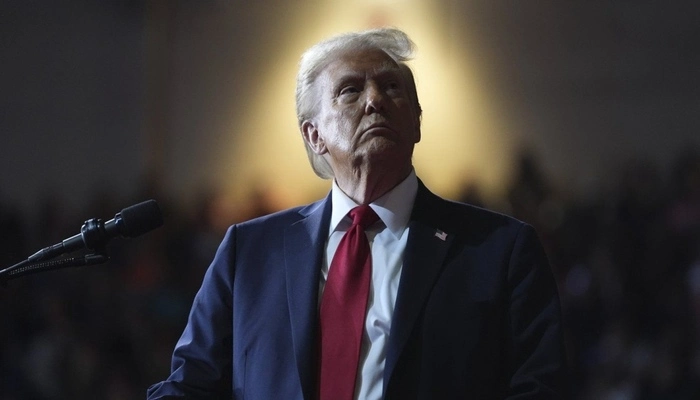
In a world where luxury is accessible to many, the lines between wealth and luxury spending have blurred. You might expect the rich to drive luxury sales. But recent studies show otherwise. It’s often middle-class buyers—not the ultra-wealthy—who contribute the most to luxury brands’ success. This trend has interesting roots in psychology, consumer behavior, and clever marketing.
Here, we explore the motivations behind why people who aren’t necessarily rich buy luxury brands and why the wealthy tend to steer away from showy logos and obvious opulence. And we’ll also consider how some influencers, often key players in luxury marketing, are stepping back from these brands.
1. Than Just a Purchase
For many people, buying a luxury item isn’t just about owning a product; it’s about signaling status. According to research published in the Journal of Consumer Research, people often buy luxury goods to display a higher social standing. This is especially common among those who feel their status is evolving or wish to signal success to others (Han, Nunes, & Drèze, 2010).
This behavior, called “conspicuous consumption,” isn’t exclusive to the wealthy. Middle-class and even lower-income individuals engage in it, hoping to communicate success and gain social acceptance.
Consider a young professional buying a luxury handbag. They may not have reached financial security yet, but they see this purchase as an investment in how others perceive them. For them, it’s a way to feel part of a certain social group, even if they’re not financially there yet.
2. Emotional Fulfillment and the Need for Self-Reward
Buying a luxury item also satisfies emotional needs. Research from the Journal of Business Research shows that luxury goods often act as a form of self-reward and can improve self-esteem. Many people feel a rush of pride and happiness after acquiring a high-end item, and this feeling can outweigh the guilt of spending (Truong, Simmons, McColl, & Kitchen, 2008).
People often buy luxury products to celebrate achievements. They may indulge after a promotion, a job well done, or a personal milestone. For them, luxury isn’t just about the brand; it’s about treating themselves to something special. It’s a way of saying, “I deserve this.”
Think of it like this: a person buys a luxury watch after achieving a personal goal. The watch then becomes a daily reminder of their hard work. In many ways, it acts as a symbol of success. This is especially appealing to those who may not have grown up with wealth or financial freedom. For them, this purchase feels like a milestone, a reward for their progress.
3. The Power of Marketing and Exclusivity
Luxury brands know exactly how to attract aspirational buyers. According to the Boston Consulting Group (BCG), luxury brands use scarcity and exclusivity as powerful tools. Limited editions, celebrity endorsements, and high-profile collaborations add allure to these products, convincing people they’re buying into something unique (BCG, 2019).
Scarcity increases desire. When people know an item is in limited supply, they feel an urgent need to buy it. This tactic works well for those who may not usually buy luxury. Limited-edition sneakers, designer bags, or exclusive perfumes become tempting, even if they strain budgets.
Take an exclusive handbag launch, for example. A limited release makes it rare, instantly creating a sense of exclusivity. For a buyer, owning one of these bags means they belong to a small group. This is appealing to those who crave recognition, even if they aren’t affluent. In their eyes, it’s an opportunity to own something special and feel closer to a lifestyle they admire.
4. Meet the HENRYs; High Earners, Not Rich Yet
There’s a demographic driving luxury sales called “HENRYs”—High Earners, Not Rich Yet. These individuals earn well but aren’t ultra-wealthy. According to the Luxury Institute, this group values quality and likes to show their financial success, even if they aren’t millionaires (Luxury Institute, 2018).
HENRYs enjoy the prestige of luxury brands and feel their incomes justify the expense. They’re willing to spend on a designer outfit or watch that symbolizes their hard work and ambition. This demographic is growing, particularly among young professionals, and they are a crucial customer base for luxury brands.
A HENRY might splurge on designer clothing, but they also budget for savings, investments, and other priorities. Unlike the wealthy, they see luxury goods as more than just items—they’re markers of progress and success. They help them feel they’re on the right track in life.
5. The Wealthy Choose “Quiet Luxury”
While middle-class buyers often go for conspicuous luxury items, the truly wealthy tend to opt for “quiet luxury.” They’re less likely to wear loud logos and often prefer subtle, high-quality brands that aren’t obvious status symbols. Studies by Wealth-X and Euromonitor International confirm that high-net-worth individuals often prioritize quality over branding. Their luxury choices are more discreet and focus on quality craftsmanship rather than status (Euromonitor International, 2020).
For example, rather than a branded designer bag, a wealthy individual might choose a custom leather bag from an artisan. It’s high-quality and luxurious, but it doesn’t scream “designer.” This choice reflects a confidence in their wealth and a lack of need to flaunt it.
The ultra-wealthy often prefer items that signal to other insiders without attracting attention from everyone else. This approach, sometimes called “stealth wealth,” values discretion over flashiness. They know they don’t need to prove their status to anyone, which gives them the freedom to focus on quality rather than public approval.
6. Younger Generations and Lifestyle Investments
Today’s younger generations, especially Millennials and Gen Z, have a unique view of luxury. To them, luxury goods are lifestyle investments that reflect their identity. They see these purchases as part of their self-expression and goals. The Boston Consulting Group estimates that Millennials and Gen Z are increasingly willing to spend on luxury items, not just for the brand but for the experience and self-image it provides (BCG, 2019).
For instance, a young professional might buy a luxury jacket, not for the logo but because it aligns with their personal brand. They see luxury as part of who they are and where they want to go. This mindset shift has contributed to the rise of luxury markets, with younger buyers viewing these items as symbols of achievement.
OpenAI Launches ChatGPT Search, New Challenge to Search Engines
7. Why Influencers Are Leaving Luxury Brands
Recently, a surprising shift has emerged. Many influencers, who once championed luxury brands, are leaving these partnerships. The shift highlights issues in the luxury world and the growing awareness around fast fashion, overconsumption, and the mental health toll of constantly promoting a lavish lifestyle.
Influencers have realized that their image isn’t sustainable if it’s only tied to luxury items. Some argue that constant luxury promotion creates pressure among followers who may feel left out or inadequate. And as influencers gain a greater social conscience, they’re moving toward sustainable fashion, wellness products, and brands with ethical missions.
This move impacts luxury brands significantly. Influencers brought in younger buyers and kept the brands relevant in a fast-changing market. With influencers leaving, luxury brands may need to shift their marketing strategies. Relying solely on exclusivity or celebrity status might not be enough anymore as consumers seek authenticity and a more balanced approach to consumption.
Why Non-Rich Buyers Drive the Luxury Market
Luxury brands thrive thanks to the aspirations of middle-class and high-earning-but-not-rich buyers. These consumers are motivated by a mix of status, emotional fulfillment, and clever marketing. They want to feel successful and special, and luxury brands help them achieve that feeling.
For the ultra-wealthy, luxury is about quality and discretion. But for the rest, it’s a way to reach for something greater, a glimpse of a life they admire. Brands understand this and have created marketing strategies that make luxury goods irresistible, even for those who may need to stretch to afford them.
However, as influencers step back from luxury brands, it’s clear the industry faces new challenges. The aspirational consumer market is changing, and the emphasis may shift toward authenticity, sustainability, and ethical consumerism. In the end, luxury isn’t only about wealth. It’s about identity, emotional connection, and the lifestyle people aspire to create. For many, that’s worth the investment—at least, for now.
Follow Day News on Google News, Instagram, YouTube, Facebook, Whats App, and TikTok for latest updates










